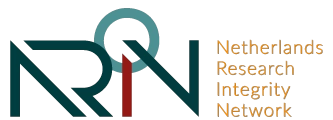Join us on Monday, September 23, at the Roeterseiland campus for a full-day event on scientific integrity.
UvA Open Science coordinator Frans Oort will open the event, followed by talks from international experts on detecting scientific fraud, Elisabeth Bik and Ben Mol, as well as national experts on research integrity Mariëtte van den Hoven and Gerben ter Riet.
The event is free and includes lunch and networking drinks. You can choose to attend either the morning session, the afternoon session, or both, depending on your availability and interests.
Program and registration:
Scientific Integrity Symposium – University of Amsterdam (uva.nl)
About the speakers:
Elisabeth Bik is a scientific integrity consultant based in San Francisco and a member of the eLife Ethics committee. She is renowned for her expertise in image forensics for scientific papers and has identified over 4,000 potential cases of scientific misconduct, including more than 400 linked to the “tadpole paper mill”.
Ben Mol has developed methods to detect fraud in scientific publications over the past 12 years, scrutinized articles for signs of manipulated data, and raised awareness about the impact of fabricated articles on medical guidelines. His discoveries as a whistleblower are frequently highlighted on the platform Retraction Watch.
Gerben ter Riet is a clinical epidemiologist at the Amsterdam University of Applied Sciences (HvA) and specializes in the intersection of research integrity and quantitative research methodologies. He consults at the HvA Open Science Support Desk, and co-authored the 2015 ZonMw research program aimed at promoting responsible research practices.
Mariëtte van den Hoven chairs the executive board of the Netherlands Research Integrity Network. As an expert in professional ethics and research integrity, she leads a European consortium dedicated to developing training programs that promote responsible research practices and empower researchers to speak out on ethical issues within their fields.
This event is organized by the Open Science Community Amsterdam (OSCA) and the Student Initiative for Open Science (SIOS) and is supported by Open Science NL.
